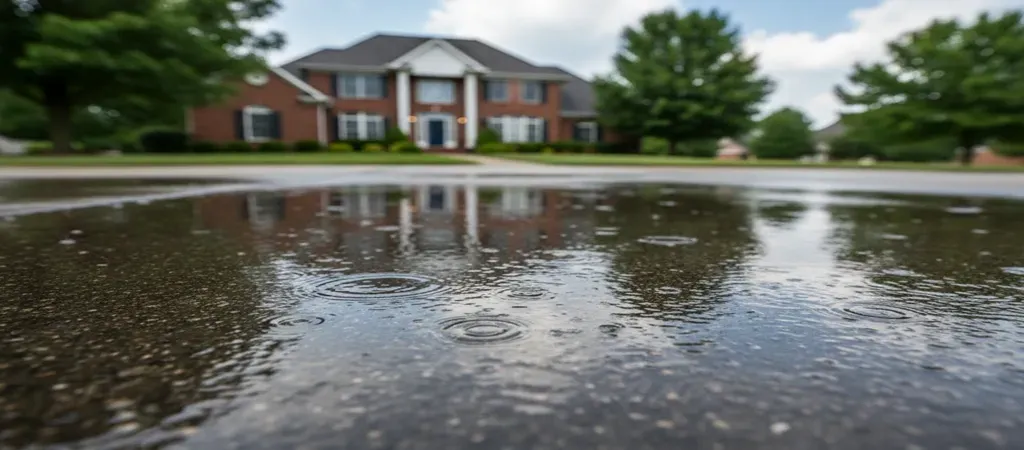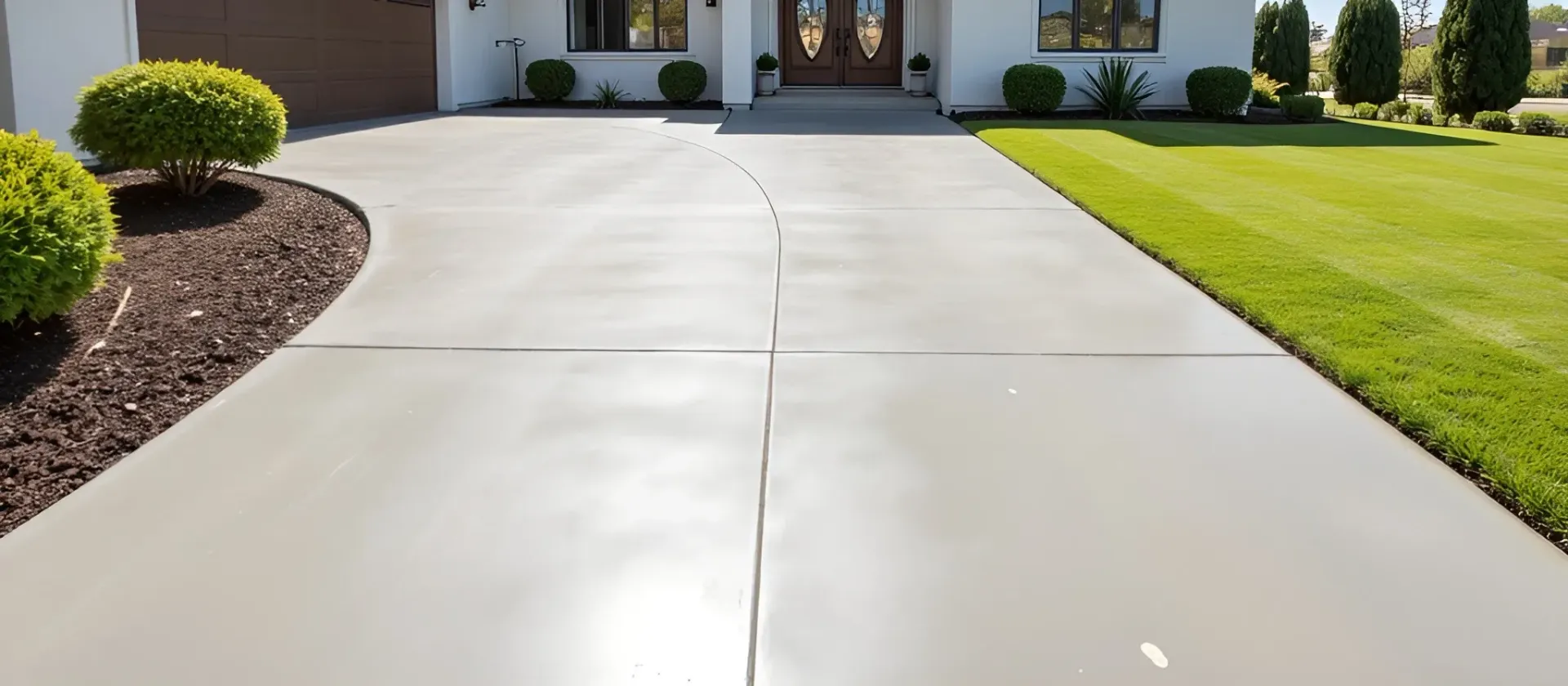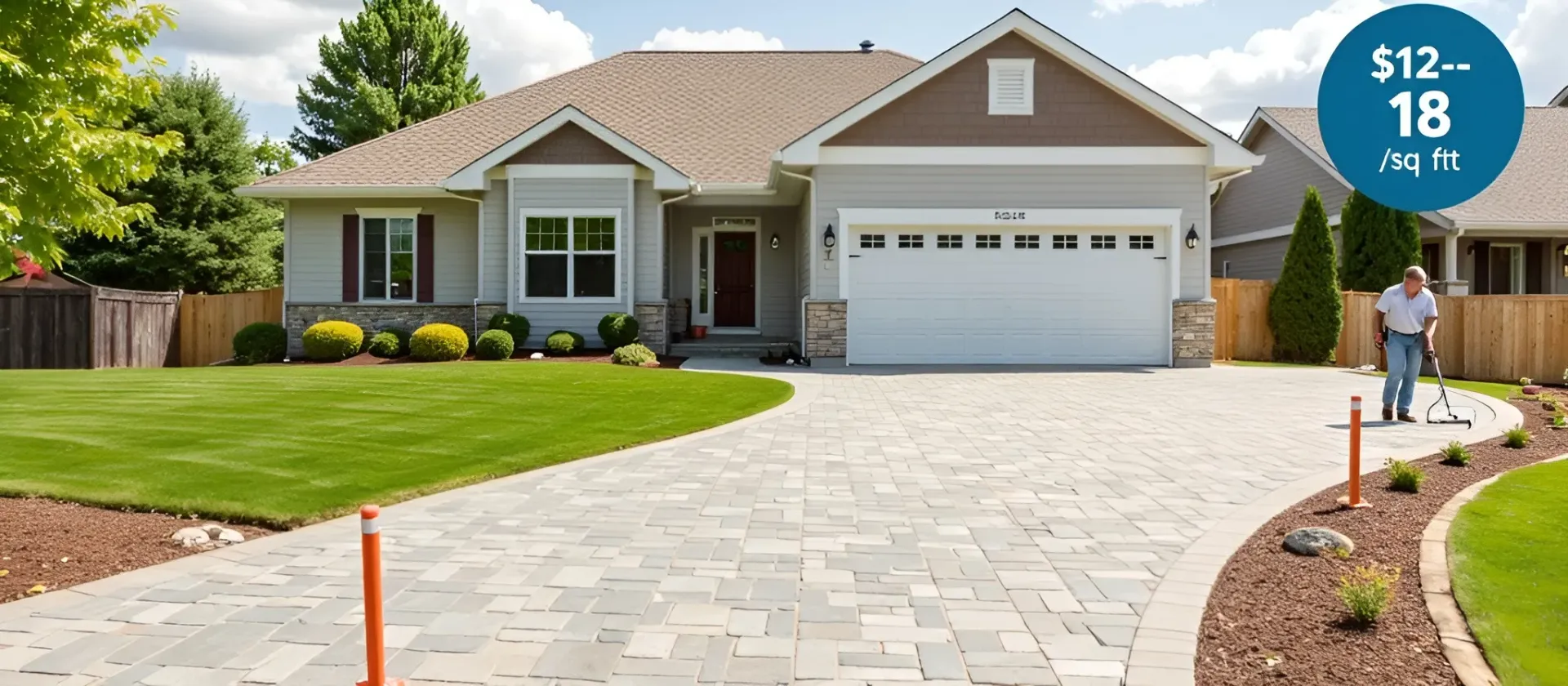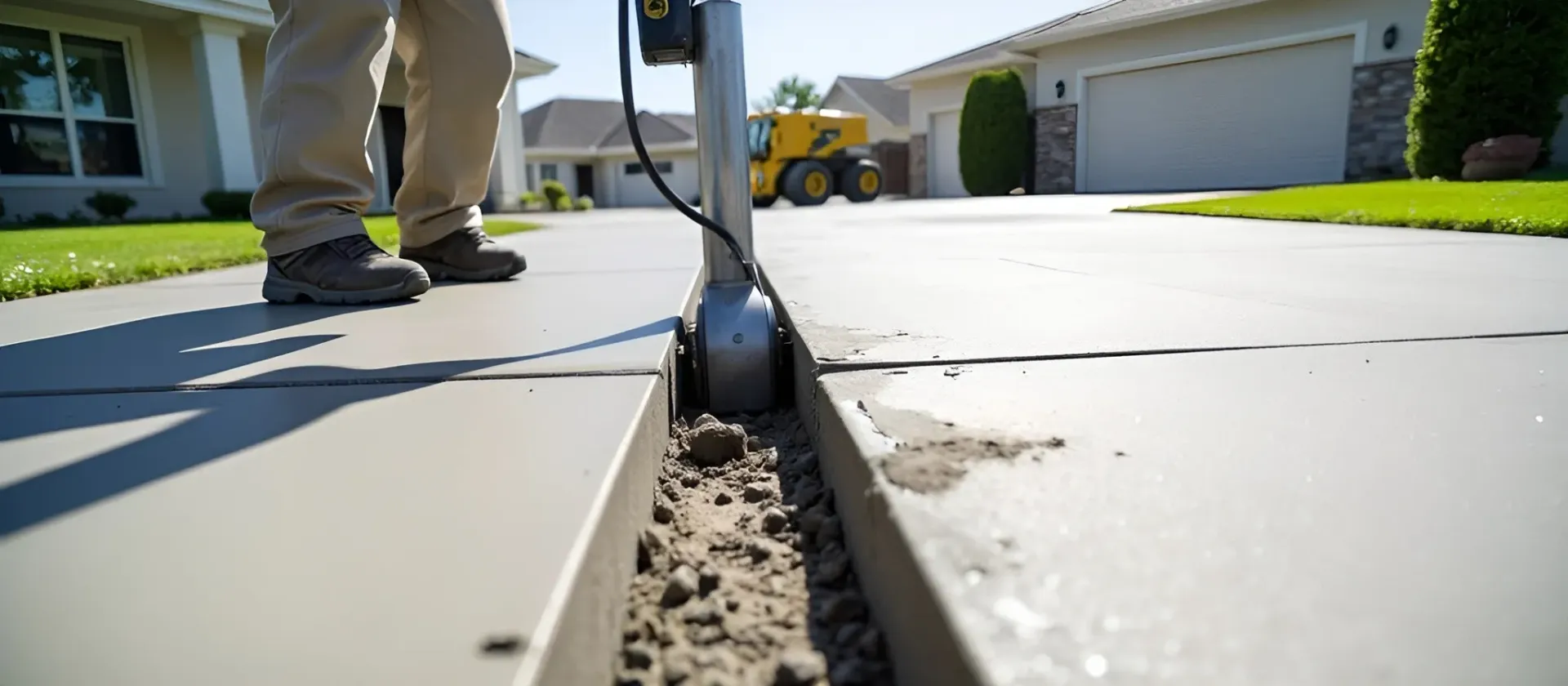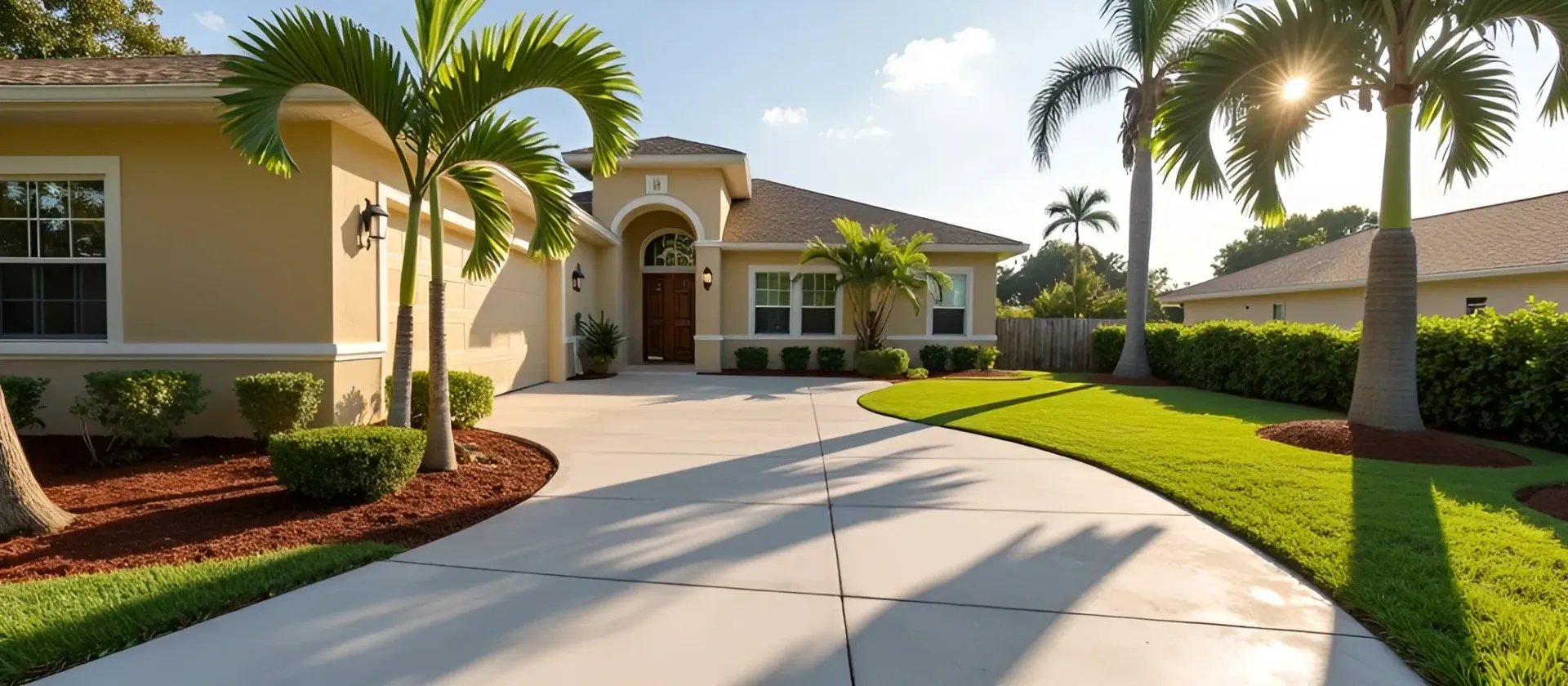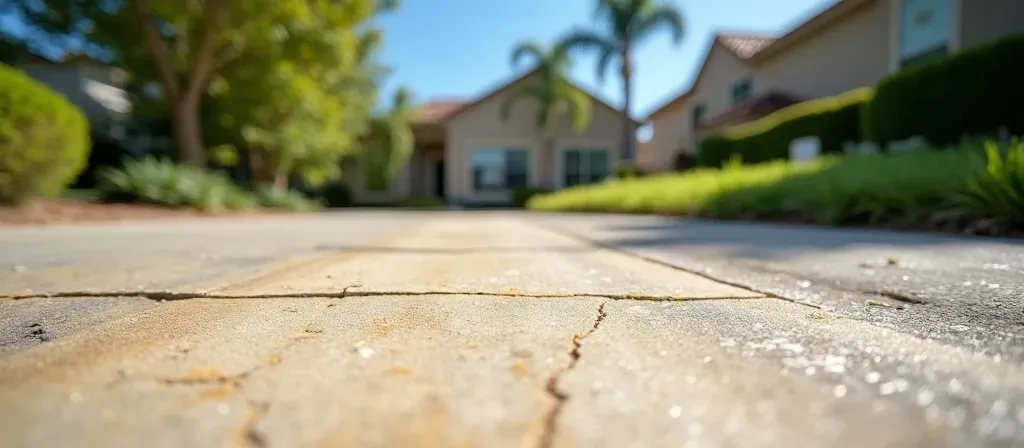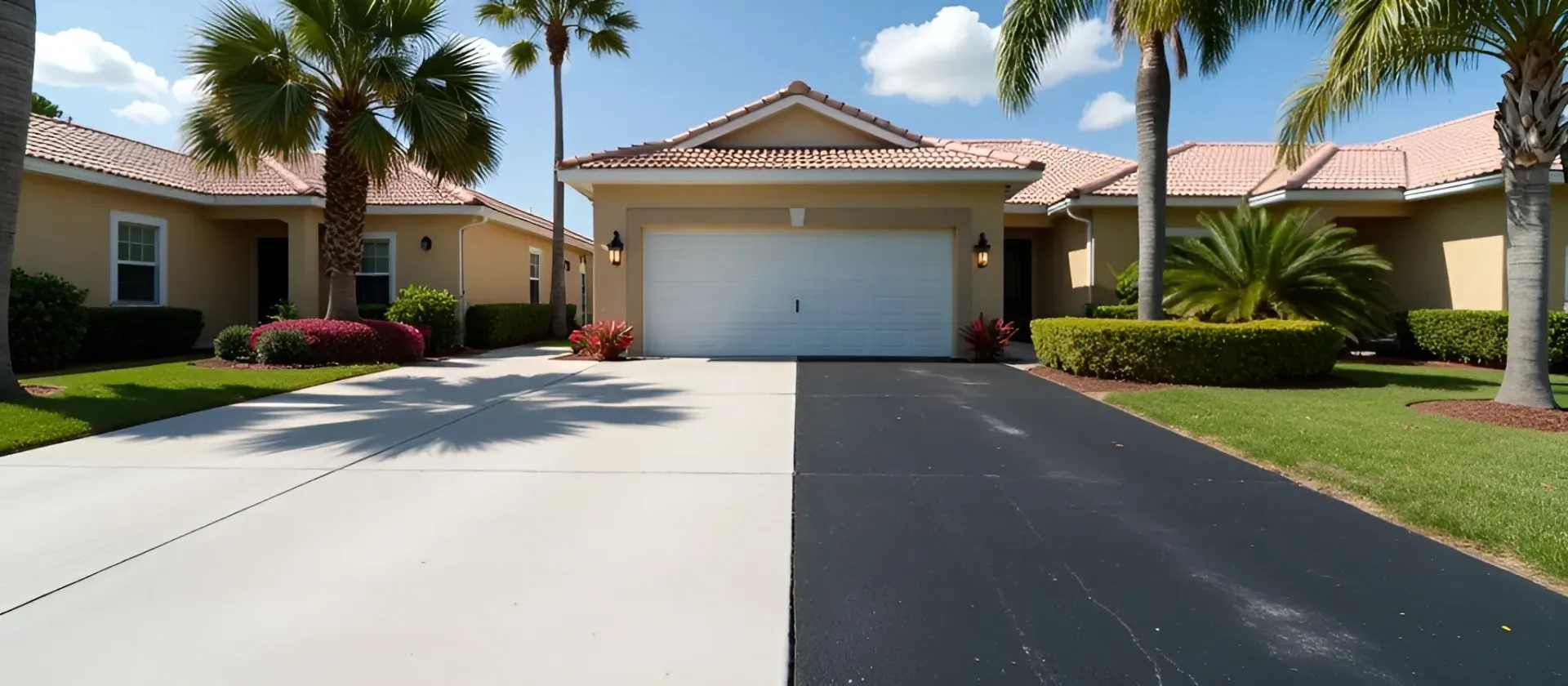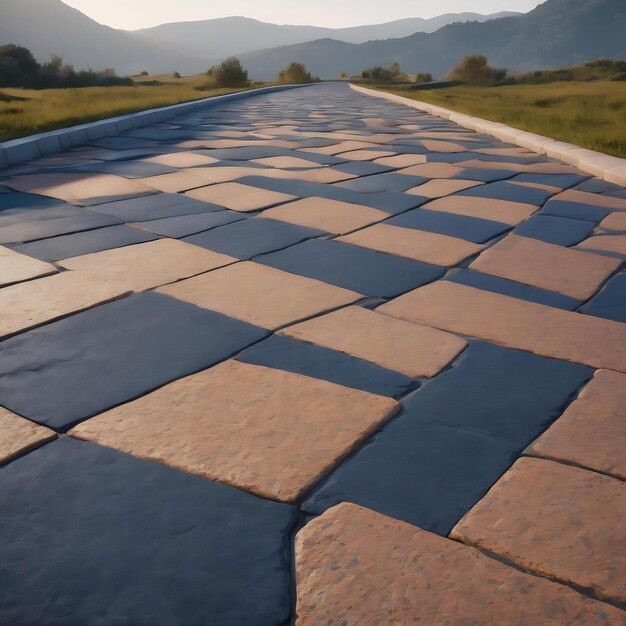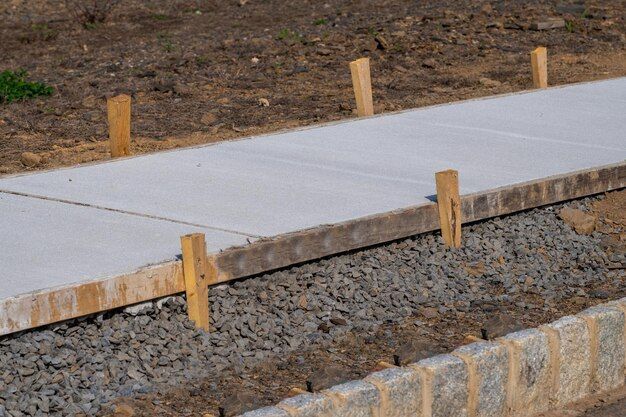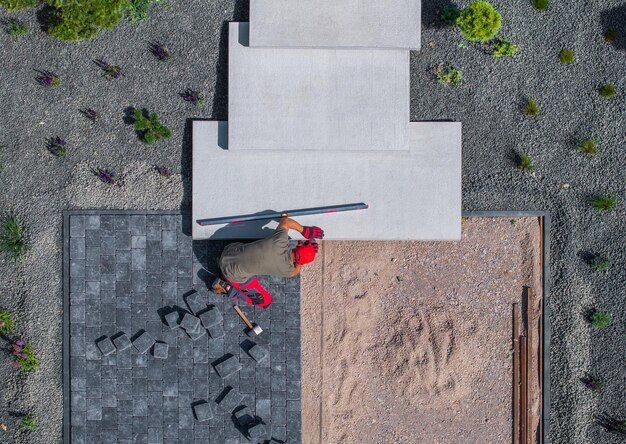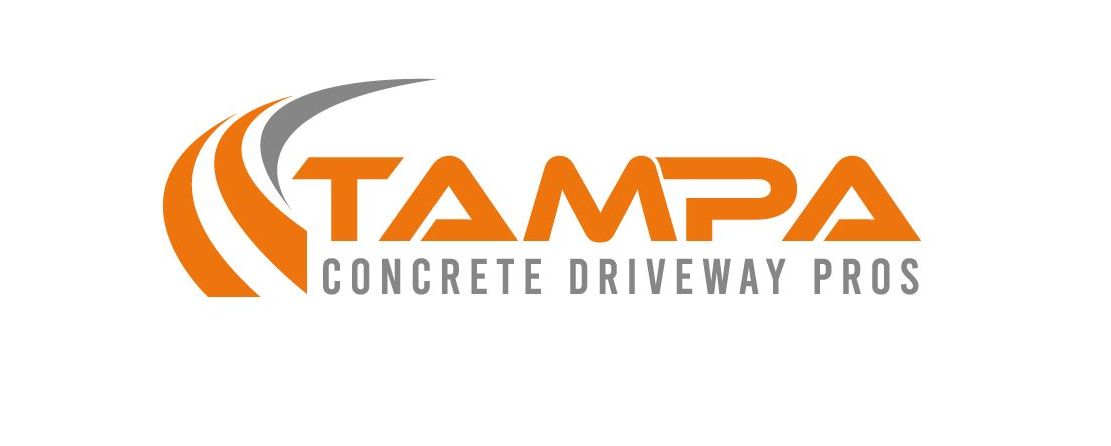Exploring the Drawbacks of Fiber-Reinforced Concrete for Driveways
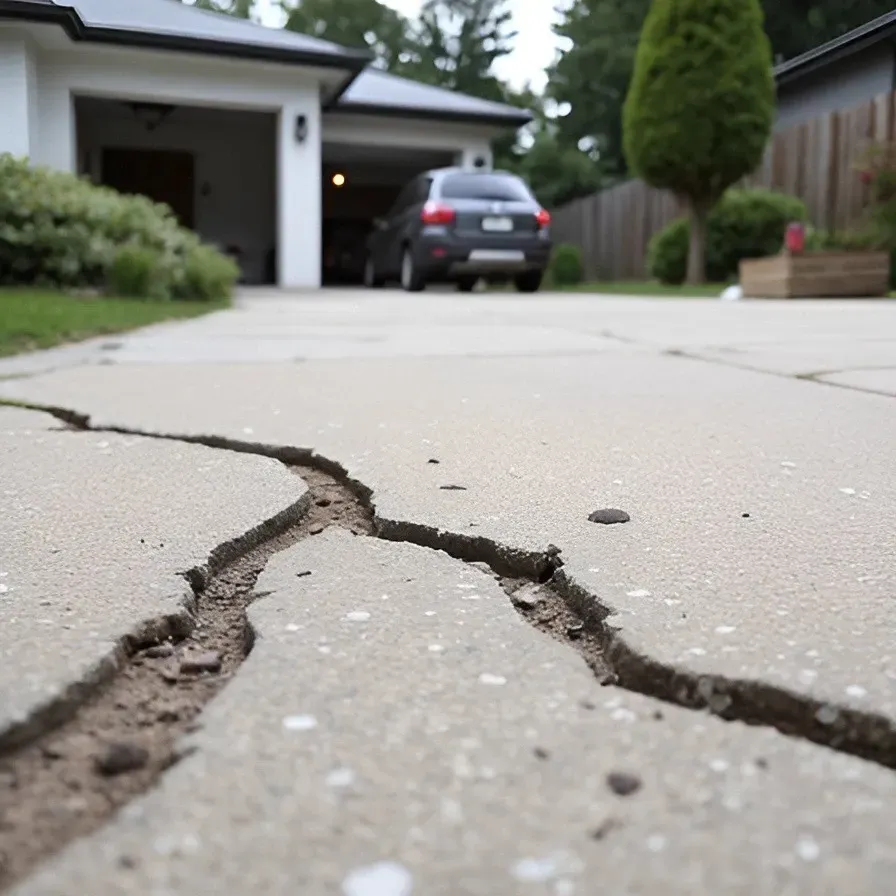
Concrete is solid but fiber-reinforced concrete (FRC)? Even stronger. Sounds like a no-brainer, right? More durability. Fewer cracks. Better performance.
But wait. Let’s hit pause.
FRC isn’t all sunshine and indestructibility. It has real downsides that can mess with your driveway, wallet, and patience. If you don’t know them, you’re walking straight into a decision you might regret.
So before you go all in, let’s break it down. The good. The bad. And the “why didn’t anyone tell me this?” of fiber-reinforced concrete for driveways.
What Is Fiber-Reinforced Concrete, Anyway?
Fiber-reinforced concrete (FRC) is just regular concrete but leveled up. The secret? Fibers. Tiny, mighty reinforcements made of steel, glass, synthetics, or even natural stuff. Their job? Fight cracks. Boost strength. Make concrete tougher.
You’ll see FRC holding up highways, bridges, and industrial floors. Heavy-duty places that need muscle.
So, for driveways? Sounds like a dream. But hold up. Every superhero has a weakness. And fiber-reinforced concrete is no exception. Let’s flip the coin.
Workability: It’s a Nightmare to Handle
One major drawback? FRC is not easy to work with.
- Mixing problems: The fibers clump together. That makes the mix uneven. It’s a hassle for contractors. Plus, it can lead to weak spots.
- Difficult to pour: FRC has a stiff consistency. It's harder to spread smoothly.
- Annoying to finish: FRC doesn’t settle easily. You’ll likely end up with rough patches or fibers sticking out of the surface.
Even experienced contractors can struggle with FRC. And if it's not mixed properly, you could end up with a weaker, uneven driveway that won’t hold up as well as expected. This is why following proper standards for installing concrete driveways is crucial.
Surface Finish? More Like Surface Trouble
A driveway should look good, right? Well, the FRC doesn’t always cooperate.
- Fibers can poke through: Imagine tiny hair-like fibers sticking out of your driveway. Not exactly the smooth, polished look you were hoping for!
- Harder to stamp or texture: If you want a decorative finish, FRC can be stubborn. The fibers interfere with patterns, making stamped concrete less attractive.
- Discoloration risks: Some fibers can rust and react with moisture. Especially steel ones. That leads to stains over time.
If curb appeal is high on your priority list, you might want to rethink FRC. A traditional concrete driveway with proper sealing might be a better bet for aesthetics. Learn more about styles and finishes for concrete driveways
Cost: Your Wallet Won’t Be Happy
Here’s a big one—price. Fiber-reinforced concrete is not cheap.
- Material costs: Fibers add to the price, especially high-performance synthetic or steel fibers.
- Labor expenses: Since it’s harder to mix, pour, and finish, contractors charge more.
- Extra tools needed: Specialized tools and methods increase the total cost.
On average, you’re looking at a 20–30% markup over regular concrete. And that’s before surprises.
Got a contractor who’s never worked with it? Brace yourself. Mistakes happen. Costs climb. And suddenly, that “stronger” driveway is wrecking your budget.
For homeowners watching their wallets, this price jump isn’t always worth it. Especially when traditional reinforcement can deliver better results for less. For example, rebar or wire mesh. For tips on how to avoid costly repairs and extend your driveway’s life, check out how to prevent damage and extend the life of your concrete driveway.
Durability Isn’t Always Guaranteed
FRC is marketed as “super strong,” but it has its weak spots.
- Fibers can degrade: Natural fibers break down over time. Even synthetic ones can lose strength.
- Not crack-proof: While FRC helps control cracks, it does not prevent them entirely. Cracks can still form, and fibers might not be enough to stop major issues.
- Alkali-silica reaction (ASR): Some fibers react with concrete’s natural chemistry, causing expansion. Expansion leads to cracks. And cracks? The very thing you were trying to avoid.
- Micro-cracking risks: Some fibers stop big cracks but they invite a swarm of tiny ones. Harmless at first but over time? They gang up, weaken the surface, and turn your driveway into a spiderweb of regret.
And durability? It’s not just about the fibers. Climate matters. Mix quality matters. Installation technique? Crucial. Get one wrong, and even the best FRC won’t save you. For insights on why concrete is often the best choice for driveways, visit why concrete reigns supreme for Tampa driveways.
Environmental Concerns: Not the Greenest Choice
Do you care about sustainability? Then you might think twice.
- Synthetic fibers aren’t eco-friendly: Most synthetic fibers are plastic-based. That means they’re not biodegradable.
- Hard to recycle: FRC can be tough to break down. You can not reuse it.
- Energy-intensive production: Some fiber types require a lot of energy to manufacture, increasing the carbon footprint.
- Microplastic pollution risks: Over time, synthetic fibers can break down which contributes to microplastic pollution. It is harmful to the environment.
If sustainability is the goal, FRC isn’t the winner. It’s strong, sure but at an environmental cost.
Greener options exist. Recycled aggregate concrete? Uses old materials, and reduces waste. Pervious concrete? Soaks up rainwater, and cuts down runoff. Both are easier on the planet but still tough and durable.
So… Is It Worth It?
On the surface, it seems like a no-brainer. Stronger than regular concrete. Less cracking. More durability.
But reality hits differently.
It’s expensive and costs 20–30% more than regular concrete. Maybe even higher with installation hiccups.
It’s tricky as fibers don’t mix evenly. Placement is harder and finishing requires extra skill.
It’s unpredictable too. Some fibers react with concrete chemistry and lead to weird expansion.
A driveway is more than just a slab of concrete. It’s an investment. It needs to last, look good, and stay strong. Plus, it should not drain your wallet.
So, what’s the verdict? Still leaning toward FRC? Or having second thoughts? Drop your take, we’re here to help you decide! And if you’re considering your options, don’t underestimate the value of hiring professional concrete driveway contractors.

